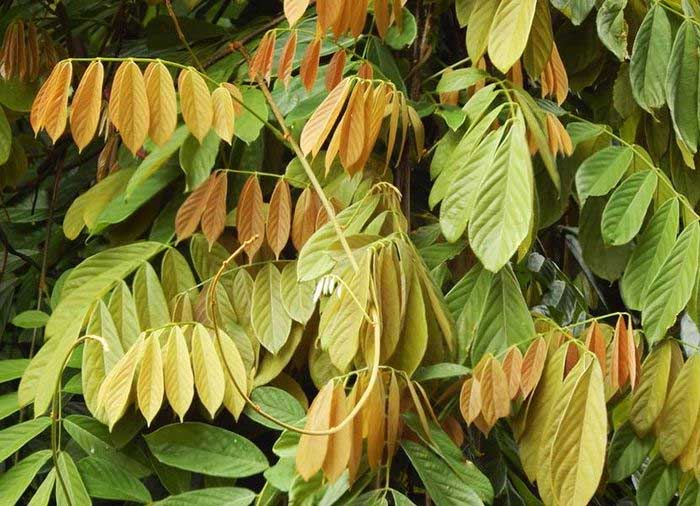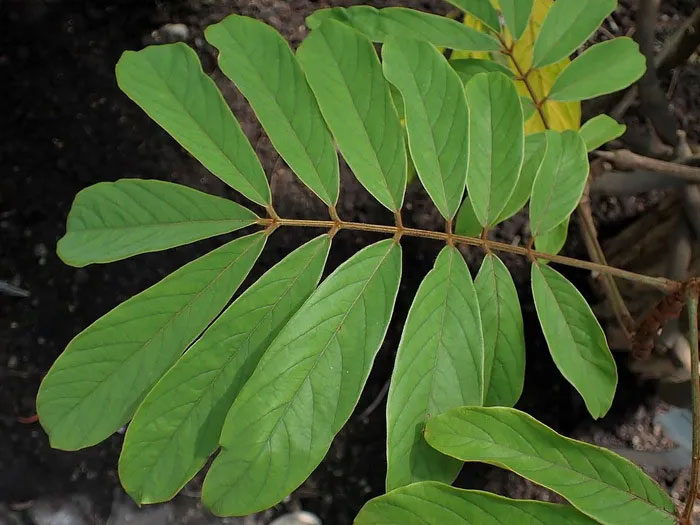Special uses of a highly poisonous plant that grows throughout Vietnam
The highly toxic substance of the plant is used as a unique fishing method, and it also has many unexpected uses .
Derris elliptica is the name of a climbing plant belonging to the legume family, commonly found in Southeast Asia, including Vietnam, and the islands of the Southwest Pacific.

The poison of the fish poison plant acts as an organic pesticide.
The roots of this plant contain a lot of rotenone , a substance that is extremely toxic to fish, reptiles, amphibians and invertebrates , but only moderately toxic to humans and warm-blooded animals.
Since ancient times, in Vietnam and other countries in the region, indigenous people have known how to take advantage of the toxicity of the fish poison plant to implement a unique fishing method. The roots of the fish poison plant will be crushed and thrown into the water where there are many fish. Fish that are stunned or killed by the rotenone toxin will float to the surface of the water and can be easily scooped up.
The poison of the fish poison plant also acts as an organic pesticide , used to control pests on crops, fight parasites on livestock or eliminate harmful insects in the home.

The roots of the fish poison plant can be used as an ingredient in the preparation of deworming medicine.
Despite its biological origin, experts in the field of ecology and organic farming do not consider fish poison plant pesticides to be ecologically sound because they have negative impacts on the environment if misused.
In the pharmaceutical field, the roots of the fish medicine plant can be used as raw materials to prepare deworming and scabies medicine.
The fish poison plant has alternate leaves and small, pink flowers. The fruit of the fish poison plant is shaped like a bean, 3–10 cm long, with 1–5 seeds, containing strong toxins. If you accidentally eat this fruit, you will be poisoned, which is very dangerous.
- Decoding the terrible toxicity of the 'suicide tree': The tree grows wild on the coast
- Identify deadly poisonous mushrooms in Vietnam
- Discover new poisonous snakes in Vietnam
- The poisonous tree species causes many deaths in Vietnam
- Fascinated by the beautiful flower species that only exists in Vietnam and is listed in the Red Book and needs to be protected.
- Beautiful but extremely poisonous snake, bites and kills many people in Vietnam
- Top 5 plants with special abilities
- Discovering a unique new plant species near the Vietnam border, China wants to immediately put it in the Red Book
- Here's Why This Plant Grows Super Slow: It Only Grows 3cm a Year
- Discovering new plant species in Vietnam
- How to distinguish hot and hard snakes
- Terrifying fungus named angel, causing a series of deaths
 13 causes of non-itchy rash
13 causes of non-itchy rash How the mouse with human ears changed the world?
How the mouse with human ears changed the world? The truth about 'fried rice syndrome!
The truth about 'fried rice syndrome! What is dental implant?
What is dental implant?